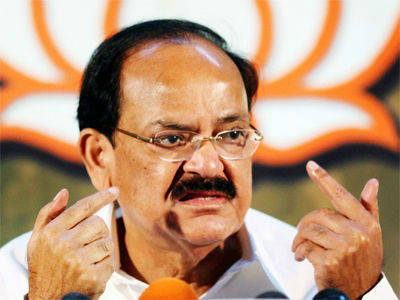New Delhi, Apr 8: The number of confirmed coronavirus cases in the country have continued to rise even on the 15th day of the lockdown, and reached 5,274 cases on Wednesday evening, according to the Ministry of Health and Family Welfare.
The tally includes 4,714 active, 411, cured/discharged and migrated cases as well as deaths. A total of 149 deaths have been reported due to the infection so far in the country.
Maharashtra with 1,018 confirmed cases has the highest number of COVID-19 patients in the country, while Tamil Nadu (690) and Delhi (576) are the two next most affected regions.
Fresh cases were reported on Wednesday from Telangana, Tamil Nadu, West Bengal, Maharashtra, Rajasthan and the union territory of Andaman and Nicobar Islands, among other states and UTs.
Meanwhile, in an interaction between Prime Minister Narendra Modi and floor leaders of several parties held today via video conferencing, discussions were held on extending the lockdown even further after the 21-day period.
The 21-day lockdown was announced on March 24 by Prime Minister Narendra Modi.
At the regular media briefing at 4 pm, Lav Aggarwal, Joint Secretary in the Health Ministry said that the government has ensured that there is no shortage of hydroxychloroquine in the country at present as well as in the future.
In the wake of COVID-19 outbreak, the Ministry of Human Resource and Development (MHRD) has launched 'Integrated Government Online Training Portal' wherein required resources will be provided for capacity building of the frontline workers.
"MHRD's training portal will provide required resources to the doctors, paramedics, nurse, technicians and ANMs and state government officials and civil defence officials, volunteers of National Cadet Corps (NCC), National Surveillance teams, Red Cross society and other organisations to have a large skill workforce to combat the coronavirus outbreak," said Aggarwal at a press conference here.
Speaking on government's preparedness on dealing with the patients having mild, very mild and serious conditions, Aggarwal said, "For people who have mild or very mild symptoms we have temporary hospitals, ie COVID care hospitals. Work is now being done to develop the field level infrastructure to take care of the mild and very mild symptomatic patients.
Similarly, for serious patients, we have dedicated healthcare centre and dedicated hospitals."
With fresh COVID-19 cases being reported across the country, several states and union territories, including Uttar Pradesh and Chandigarh, on Wednesday made it compulsory for people to use masks while venturing out of their houses.
Here's a quick read on the COVID-19 related updates:
1. Prime Minister Narendra Modi hinted that the lockdown might be extended after the completion of the 21-day period.
2. Floor party leaders of various political parties from both the Rajya and Lok Sabha assured the government of their full support in the decisions needed to be taken in the coming days and also suggested taking various measures to help the people.
3. According to the Indian Council of Medical Research (ICMR), a total of 1,21,271 tests have been conducted in the country.
4. The Uttar Pradesh government has decided to strictly implement 100 per cent lockdown in hotspots located across 15 districts in the state till the morning of April 15. These areas will be completely cordoned off and civilian passes will stay suspended while essentials would be delivered to citizens at their doorsteps.
5. The Supreme Court suggested that all tests to identify coronavirus positive patients should be conducted free of cost in the identified private laboratories and said that the court will pass appropriate order on the matter. The SC bench also asked the central government to look into creating a mechanism for providing reimbursement for the same.
6. Prime Minister Narendra Modi urged people to take the responsibility of a poor family, at least till the COVID-19 crisis persists if they wanted to honour him.
7. Union Home Ministry announced that Rs 3000 crores have been distributed among two crore registered construction workers till now, according to Saheli Ghosh Roy, Joint Secretary.
8. The MHA official said that the Home Secretary has written to the state Chief Secretaries to ensure a continuous supply of essential commodities under the Essential Commodities Act, 1955. The states can use measures like fixing stock limits, capping of price and checking bank accounts of the dealers.
9. The Health Ministry has assured that there will be no shortage of Hydroxychloroquine in the country. This came after India lifted the ban on the export of the anti-malarial drug being sued to treat COVID-19
10. The Maharashtra government too has issued an order to compulsorily wear masks while entering any government offices in Mumbai Metropolitan Region and Pune Metropolitan Region.
 “In politics, there is no enmity. Political parities are just rivals, and the differences are only ideological. Both the Centre and State governments should play like Team India towards winning the match i.e., democracy,” he added.
“In politics, there is no enmity. Political parities are just rivals, and the differences are only ideological. Both the Centre and State governments should play like Team India towards winning the match i.e., democracy,” he added.




Comments
Mr. Naidu forgotten to remind all so called \ behavior\" to his fellow members like Sakshi,Togadia,KPB and other hate mongers."
Add new comment